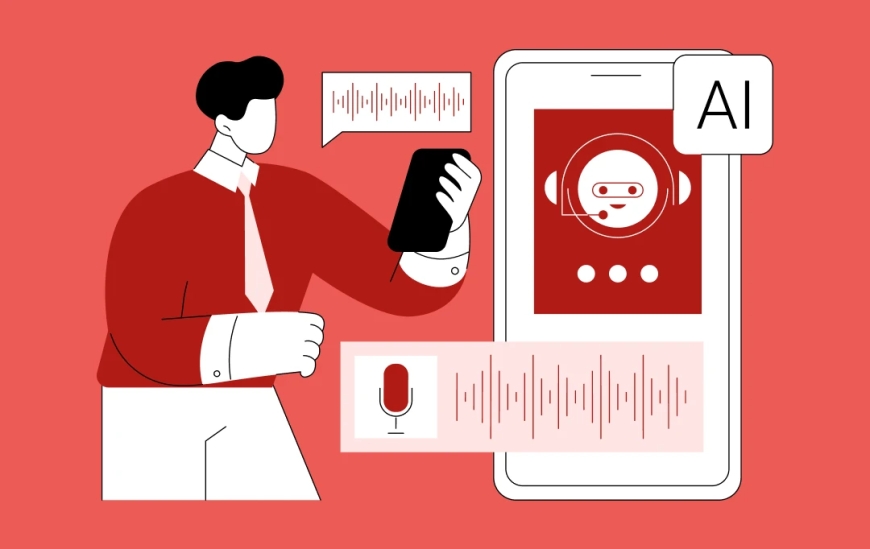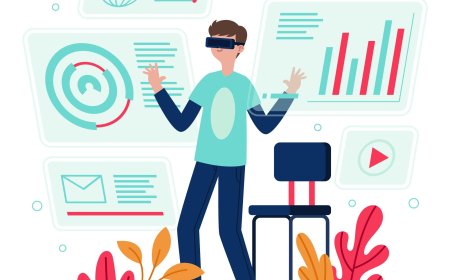Personalized learning apps with NLP for UK schools from a mobile app development company in the UK
Personalised learning is reshaping classrooms across the UK, thanks to apps powered by Natural Language Processing (NLP). These smart tools, developed by a mobile app development company in the UK, help students learn in ways that suit their pace, style, and needs.

Todays classrooms are not one-size-fits-all. Every student learns at a different pace, with unique interests and challenges. Thats why personalised learning is more than just a trendits a necessity. And now, thanks to advancements in Natural Language Processing (NLP), personalised learning apps are transforming how UK students engage with their education.
From understanding accents to identifying knowledge gaps in real time, NLP is the secret sauce behind some of the most innovative education platforms today. And at the heart of this transformation? A mobile app development company in the UK that knows exactly how to blend pedagogy with AI-powered tools.
What is NLP and Why Should UK Schools Care?
Natural Language Processing (NLP) is a field of artificial intelligence that helps machines understand and respond to human language. Think of it as giving computers the ability to read, listen, and even talk like a human being. Its the same tech behind chatbots, voice assistants, and autocorrect.
NLPs Role in Education
In schools, NLP helps apps do incredible things:
-
Evaluate student answers automatically
-
Interpret essay quality based on sentence structure and coherence
-
Recognise speech and provide pronunciation feedback
-
Create smart, conversational interfaces for learning
For UK schools facing teacher shortages and increasing class sizes, this tech is not just usefulits transformative.
How Personalised Learning Apps Use NLP
Smart Assessments That Adapt to the Student
With NLP, apps can assess how a student writes or speaks, and instantly adjust the difficulty of questions based on performance. If a child struggles with passive voice, the app will pick up on it and generate targeted exercises.
Real-Time Feedback for Writing and Speaking
Imagine a Year 7 student writing an essay on climate change. The app doesnt just highlight spelling mistakesit offers suggestions on tone, grammar, and structure using NLP algorithms. For spoken assignments, it can even detect hesitation or mispronunciation.
Conversational Tutors That Actually Converse
Thanks to NLP, personalised learning apps now feature chatbots that simulate real conversations. These bots dont just follow scripts; they understand context, slang, and even regional accents. This makes learning feel more natural, especially for students who need more encouragement.
Benefits for Students, Teachers, and Administrators
Students Learn at Their Own Pace
Every student is different. NLP-powered apps make it possible for students to receive custom feedback without waiting for a teacher to grade their work. This real-time guidance helps build confidence and retention.
Teachers Save Time and Focus on What Matters
Rather than spending hours grading or creating lesson variations, teachers can focus on strategy, creativity, and personal interaction. The app handles the adminleaving the teaching to the humans.
Admins Get Better Data Insights
With built-in analytics, personalised learning apps show which topics students are struggling with across entire year groups. This makes it easier for schools to adjust curricula, plan interventions, and showcase impact.
Why UK Classrooms Are the Perfect Fit
Diverse Student Needs Across the UK
From urban London schools to rural academies in Wales, UK classrooms are incredibly diverse. Students come from all backgrounds, speak different languages, and have varied learning levels. NLP-powered apps are especially useful in these settings because they adapt to the individualnot the average.
Alignment with the National Curriculum
A mobile app development company in the UK is likely to design platforms that comply with the Department for Educations requirements. Whether its KS2 reading comprehension or GCSE-level grammar, apps built locally understand what British schools need.
Case Study: How a Mobile App Development Company in the UK Made it Happen
Meet EduNLPA Hypothetical but Plausible App
Lets imagine an app called EduNLP, built by a mobile app development company in the UK. The team combined AI engineers, educational psychologists, and primary school teachers to design the experience.
Heres what made EduNLP stand out:
-
Voice-to-text capabilities for students who struggle with typing
-
A built-in AI writing coach that explains grammatical mistakes
-
Regional accent supportcritical for children in Scotland or Northern Ireland
-
Daily revision quizzes tailored to each students weak points
The result? Schools saw a 35% improvement in literacy scores over one term. Parents loved the progress tracking. And teachers, finally, had time to plan creative lessons.
How Software Development Companies Bring These Apps to Life
Its Not Just CodingIts Curriculum + AI
Successful personalised learning apps arent just tech-driventheyre purpose-driven. Software development companies working on these projects must collaborate with curriculum designers and NLP specialists.
This multi-disciplinary approach ensures the final product:
-
Meets national education standards
-
Respects classroom workflows
-
Stays intuitive for both children and adults
UX/UI Thats Child-Friendly
Kids wont use what they dont enjoy. Thats why software development companies focus heavily on interface design. Bright visuals, gamification, voice navigationall of it matters when the end-user is 8 years old.
Ongoing Updates Based on Real-World Use
Once launched, a great learning app evolves. Feedback from teachers and performance data from students help mobile app development companies in the UK iterate quicklyreleasing regular updates that improve the experience over time.
Challenges to Considerand How Theyre Being Solved
Data Privacy and GDPR
UK schools are serious about student data protection, and rightly so. Top software development companies ensure that all personal data is encrypted, anonymised, and stored within UK-based servers.
Bias in NLP Models
NLP isnt perfect. Some AI models may carry hidden biases, especially in evaluating non-native speakers. Thats why the best developers use diverse training datasets and human oversight to reduce error.
Tech Access for All Students
Not every home has high-speed internet or the latest tablets. Apps must be lightweight, offline-friendly, and compatible with older devices to ensure no student is left behind.
The Future of Personalised Learning in the UK
AI and NLP Will Get Smarter
As NLP models like ChatGPT continue to improve, learning apps will become even more nuanced. Expect speech tutors that understand emotion, essay graders that detect sarcasm, and revision bots that simulate teacher-student banter.
Integration with School Systems
Soon, these apps will plug directly into classroom projectors, homework portals, and even parent communication platforms. Think of it as one seamless educational ecosystem.
More Collaboration Between Schools and Developers
Were likely to see more direct partnerships between schools and a mobile app development company in the UK, where teachers help shape feature roadmaps and students become co-creators of their learning journeys.
Conclusion Its Time to Rethink EdTech
Personalised learning apps with NLP are no longer the futuretheyre the now. And with the help of a trusted mobile app development company in the UK, schools across the nation are beginning to tap into that potential.
These platforms are smart, intuitive, and truly student-centric. More importantly, theyre built with purposeto give every child the tools to learn in a way that feels natural, effective, and empowering.
As software development companies continue pushing boundaries, one things clear: the classroom of tomorrow is already in our handsand its powered by apps that can understand, adapt, and inspire.



































